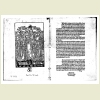
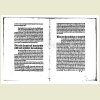 Ioannes de Paltz: Die himmlische Fundgrube, first pages |
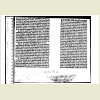
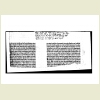 Iudicium ad a. 1492 |
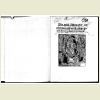 Faber Wenceslaus de Budweis: Iudicium ad a. 1492 |
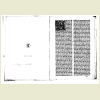 Gart der Gesundheit, preface |
| Alphabetical Index | Series Index |
German incunabula:
1. Ioannes de Paltz : Die himmlische Fundgrube. Leipzig, non ante 1490
2. Otto von Passau : Die vierundzwanzig Alten. Koln, 1492.
3. Gart der Gesundheit, ed. Ioannes de Cuba. Augsburg, 13 VII 1493
4. Faber Wenceslaus de Budweis : Iudicium ad a.1492 in dialecto Germaniae inferioris. Lubec, 1491

 Ioannes de Paltz: Die himmlische Fundgrube, first pages |

 Iudicium ad a. 1492 |
 Faber Wenceslaus de Budweis: Iudicium ad a. 1492 |
 Gart der Gesundheit, preface |
The Warsaw University Library collection of incunabula, although small (142 items), contains 28 items unique to Poland and 18 items recorded in the union catalogue Inkunabuły w bibliotekach polskich (IBP Warszawa, 1970) as the second copies in Poland. Among them, popular books, like calendars, chronicles, herbaria, and diaries about foreign trips, in native languages, are particularly interesting. Four German texts on our CD-ROM belong to this category.
Gart der Gesundheit (Augsburg 1493) is an herb-cultivation handbook by the physician Johannes de Cuba. Descriptions of healing properties of plants are enchanced by many hand-coloured woodcuts. The only copy of this edition in Polish holdings come from Wallenbergs' library in Kamienna Góra (Silesia) and has belonged to the Library since 1949.
Die himmlische Fundgrube (Leipzig 1490) contains sermons of the German theologian and preacher, Johannes de Paltz, showing examples of a virtuous life. This is the only copy in Poland and comes from the Warsaw Capuchin library. Later it was held in the Evangelical Lutheran Church library, which gave it to the Warsaw University Library in 1949.
Treatise Die vierundzwanzig Alten (Koln 1492) contains lessons edited by Bishop Otto van Passau for people prepairing themselves for position of authority. The incunabulum is also valuable because of its original binding. It has been held in the Warsaw University Library collection since 1946; erlier was the property of Gdansk historian and pastor, Ernest Otto Blech (-1922).
Practica or Iudicum (Lubeck 1491) is a type of calendar, containing prophesies for each year in advance. This type of publication was very popular but, because of beeing printed on poor paper, the calendars rarely survived to the present time. Our copy (in Plattdeutsch) remains unfold section and was used as a end-papers in other incunabula's binding. This is unique in the world - other libraries have only single pages.